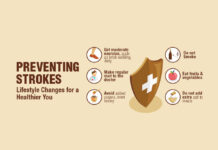
Heart health news for 2018
We regularly follow health news and have found some revelations recently in new studies and re-examined research. Just in time for our traditional February Heart Health Month, we’ve collected a round-up of scientific discoveries involving the heart that we found interesting, and hope you do too.
One important note: because there are exceptions to research findings, check with your doctor before making significant changes in your diet, lifestyle or medication and supplement regimens.
CHOLESTEROL—NOT ALWAYS HARMFUL?
Cholesterol is not what we thought when it comes to heart health.
The American Journal of Clinical Nutrition has reported on an analysis covering over 300,000 participants in which the authors concluded, “Dietary cholesterol did not statistically significantly change serum triglycerides or very-low-density lipoprotein concentrations.”
The British Medical Journal published study findings on over 68,000 participants showing that, in people over the age of 60, low density lipoprotein, LDL—the “bad” cholesterol—is not associated with early death but is, in fact, associated with longevity.
In a review of 24 clinical trials of statin medication use in cases of heart failure, published in 2017, the authors concluded statins do not reduce sudden cardiac death, or mortality, but can in some cases reduce the length of hospitalization.
SUGAR: BAD FOR YOUR WAISTLINE AND YOUR HEART
If cholesterol could be less of a factor in atherosclerosis than previously thought, what is plugging us up?
It might be sugar. In The Evidence for Saturated Fat and for Sugar Related to Coronary Heart Disease, authors James J. DiNicolantonio, Sean C. Lucan, and James H. O’Keefe comment on factors in coronary heart disease (CHD), stating:
When saturated fats are replaced with refined carbohydrates, and specifically with added sugars (like sucrose or high fructose corn syrup), the end result is not favorable for heart health. Such replacement leads to changes in LDL, high-density lipoprotein (HDL), and triglycerides that may increase the risk of CHD.
Federal guidelines advise specific limits for the amount of salt and fat we eat. There’s no official upper limit for added sugar, however. Perhaps there should be, considering that in another study performed over 15 years, participants who consumed 25 percent or more of their daily calories as sugar were more than twice as likely to die from heart disease as those whose diets included less than 10 percent added sugar. This proved true regardless of a person’s age, sex, physical activity level and body-mass index.
STRESS MAY GO RIGHT TO YOUR HEART
Researchers at the German Centre for Cardiovascular Research and Heidelberg University Hospital have conducted studies on how hearts of mice respond to stress and the influence of a gene fragment known as HDAC4. The scientists came up with new findings: a formerly undetected signal pathway causes heart failure or protects the heart from it, depending on the type of stress.
Chronic stress triggered one path of response during exercise, short-term stress another. Protective enzymatic activity and the effects of HDAC4 diminished with long-term stress, causing heart cells to rely on sugar-protein complexes for energy to a greater degree than usual. These complexes have a negative effect on calcium metabolism—a function which the heart depends upon to contract. The altered metabolism promotes heart failure over time.
When subjected to short term stress, the effect of exercise was still adverse. The mice developed heart failure after intense exercise; however, when the stress was relieved, the heart failure resolved.
Future research will explore how these findings relate to human health, but this new information adds to the evidence that stress management is vital for heart health.
COULD TOO MUCH EXERCISE BE A PROBLEM?
“Athlete’s heart”, “Athletic Heart Syndrome”, athletic bradycardia and athletic cardiomegaly all refer to a condition involving an enlarged heart with a slower than normal rate of contraction and changes in the aorta, the massive artery that distributes blood to the body, arising from extended periods of intense exercise.
In the Encyclopedia of Cardiovascular Research and Medicine (2018), L. M. Safi and M. J. Wood of Harvard Medical School state:
This syndrome encompasses a variety of significant physiological and morphological changes that affect all cardiac chambers and the aorta. Sport-specific cardiac remodeling occurs after repetitive training exercises and leads to differing cardiac adaptations. Understanding the possible normal cardiac adaptations to exercise is necessary to differentiate healthy cardiac adaptations from potentially life-threatening pathology.
It occurs primarily in endurance athletes, and is sometimes mistaken for illness-related changes in the heart. It has not been found to have adverse health effects and generally reverses following three months of deconditioning.
Is Athletic Heart Syndrome really a problem?
It could be. Potential danger could exist if it is assumed that cardiomegaly and other findings are the result of Athlete’s Heart and no further exploration is undertaken. All changes in the size and the function of the heart should always be fully investigated.










